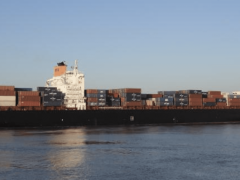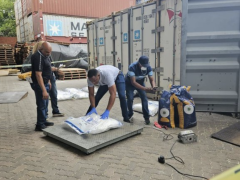AS THE National Ports Act (NPA) gets nearer implementation, Transnet National Ports Authority (TNPA) has just released the draft port rules and harbour master's written instructions – and they are open for public comment until November 15. Although there have been a few mumblings in the freight industry, no official comment has yet been made, with all the relevant industry bodies currently assessing the effects of the rules in their specific sectors of the industry. The majority of the rules concern maritime matters on the waterside of the SA ports, but there are sections which affect certain landside activities. Particularly relevant is Chapter 8 Section 144 in the rules which defines: “Activities to be licensed and registered” – and which includes ships' agents and brokers and forwarding and clearing (f&c) agents. According to the rules: “The authority may require persons who carry out activities in the ports……. to register or apply for a licence”. Existing agents will be registered for a period of three years, the rules added, with new entrants to be registered for a probationary period of 12-months. An annual registration fee will be payable to the authority. Under “registration requirements” the TNPA requires that all registration applications will be screened in terms of a set of criteria – and all applicants that meet the requirements of the exclusionary criteria will be registered. Agents will be required to submit detailed biographical and contact information (including names, identification or registration numbers, tax and VAT numbers, postal and business addresses, telephone, fax and cellular numbers and e-mail addresses) to the authority when registering. Also, added to these requirements, “the authority will exclude applicants that fail to meet all essential requirements set out” – which are referred to as “the acceptability criteria”. In a summary released to FTW, the conditions of registration for f&c agents demand that applicants must provide proof of current membership of the SA Association of Freight Forwarders (Saaff) – although the TNPA can grant an exemption “on good cause shown”. They must have a licence from customs and excise to provide clearing agent services, and will also be required to provide valid SA Revenue Service (Sars) tax clearance certificates. Under the heading for broad-based black economic empowerment (BBBEE) – agents must also “submit a verification certificate from an accredited verification agency or otherwise demonstrate that they are at least a level four (4) contributor”. Defining the “general conditions of registration”, the TNPA rules also state that: “The registered f&c agent may not act or purport to act on behalf of TNPA or to represent it in any way – is not the mandatory, agent or employee of the TNPA arising out of the issue of the licence – and the TNPA shall not be liable, vicariously or otherwise, for the acts or omissions of the registered f&c agent. “The registered f&c agent acknowledges and agrees that the TNPA may disclose any or all of the information provided by the agent to law enforcement, government and regulatory agencies – and the registered agent releases and indemnifies the TNPA from and against all losses, claims, damages, costs, liabilities, actions and causes of action arising out of or in any way connected with the disclosure or release of any information provided by the registered f&c agent to such bodies”. They also demand that “the registered agent shall comply with all relevant TNPA management systems, policies and procedures and directives”. Clearing and forwarding agents must: ● provide proof of Saaff membership ● submit a BBBEE verification certificate or otherwise demonstrate that they are at least a level four (4) contributor












